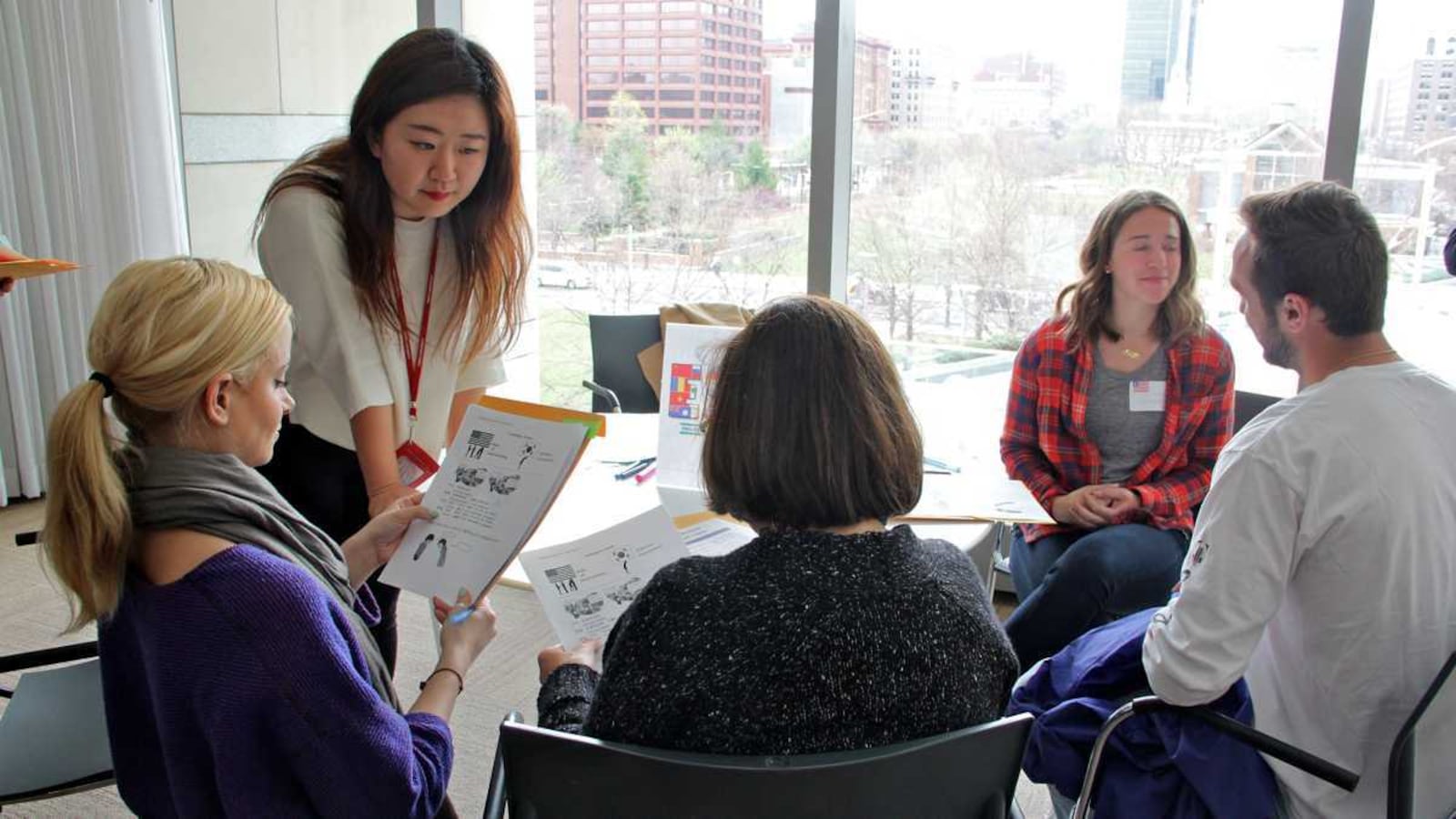This article was originally published in The Notebook. In August 2020, The Notebook became Chalkbeat Philadelphia.
The conversation began with a flurry of numbers.
About a 10th of the students in the School District of Philadelphia are English language learners, or ELLs. Combined, those ELL students speak more than 100 languages and attend nearly every District school. At 59 Philly schools, more than 10 languages are represented in the student body.
Those statistics, gathered by the nonprofit group Research for Action, laid the foundation for a forum hosted Wednesday night by WHYY and the Philadelphia Education Research Consortium. The topic was English language learners, and the message was clear: These students are legion, and they need more support.
The topic is particularly relevant now with the recent passage of a new student funding formula in Pennsylvania that attaches extra money to English language learners. (For a full breakdown of how the new formula works, click here.)
The panel discussion featured city, state, and District officials — all weighing in on how to best educate these often-vulnerable students. Multiple strategies emerged, not all of them in perfect concert.
Some, for instance, urged school leaders to focus on inclusivity and community-building before pivoting to academic material.
“We just know students can’t perform their best when they’re feeling marginalized, insecure, or put down in different ways,” said Ellen Somekawa, executive director of Folk Arts-Cultural Treasures Charter School in Chinatown. “And that stuff is just reduced when you invest in building community.”
Somekawa lamented the pressure on schools to “perform right now” on standardized tests, saying it distracted schools from building the supports that immigrant students and English learners need.
Otis Hackney, chief education officer for Mayor Kenney, also focused on building community. Before joining the administration, Hackney was principal at South Philadelphia High School. He earned wide acclaim for his leadership after revelations of violence against Asian students at Southern. The key in that case, Hackney said, was building “safe spaces” where students and administrators of different backgrounds could come together over shared interests such as breakdancing and ping pong.
“A student and I don’t have to speak the same language to realize, OK, principal Hackney cares,” he said.


